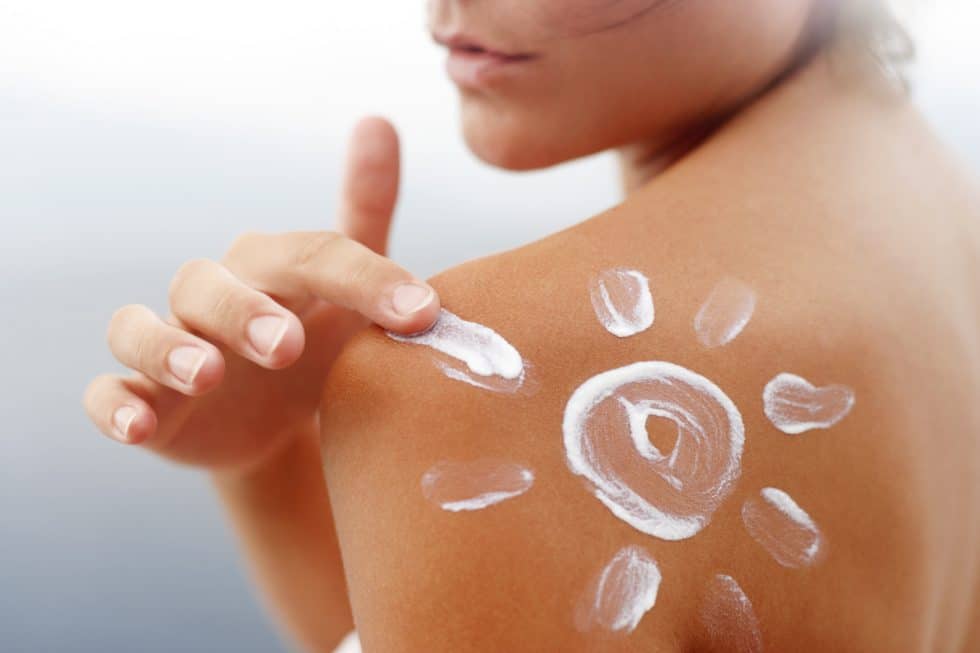Heading to the pool or beach this summer? Don’t forget to grab your sunscreen! Sunscreen protects your skin from harmful UV radiation. Too much exposure can result in painful burns, freckles and premature aging in the form of wrinkles. It can also increase your risk of skin cancer, including melanoma. Here are some tips to keep your skin healthy this summer:
Sunscreen:
- Choose a sunscreen with SPF (Sun Protection Factor) of 30 or higher, and one that protects against both UVA and UVB rays. Look for a product containing zinc – the best UV blocker.
- Check your sunscreen’s expiration date. If expired, it won’t offer you the protection you need.
- Apply sunscreen liberally to all exposed areas 15-30 minutes before heading outside. Pay attention to areas like ears and back of neck.
- Reapply every 2 hours, or immediately after sweating or swimming. “Water-resistant” formulas still need to be reapplied throughout the day. No sunscreen is “waterproof.”
- Limit sun exposure during the hours of 10 a.m. to 4 p.m. when the sun’s rays are strongest and seek shade when possible.
- Check medications you are taking. Some drugs increase sun sensitivity, meaning you’ll burn more quickly than usual. Ask your doctor or pharmacist if you have questions.
Clothes and accessories:
- Breathable but tightly woven cotton clothing provides the best protection. Wear loose fitting long sleeved shirts and pants. At a minimum, wear a T-shirt or cover-up. Wet clothing provides less protection than dry.
- A wide brimmed hat will help to protect your face, ears and neck. Baseball caps help protect your face, but you’ll need to cover the back of your neck with clothing or a towel for maximum protection.
- Sunglasses help protect your eyes from UV damage that increase your risk of developing cataracts. Look for a pair that blocks both UVA and UVB rays.
If you get a sunburn:
- Apply cool compresses for 15 minutes several times daily or take cool baths. Gently pat skin dry.
- Use a soothing moisturizer containing aloe vera. The American Academy of Dermatology recommends avoiding lotions or creams containing petroleum, benzocaine or lidocaine. Petroleum traps heat and the “-caine” medications can further irritate the skin. For very painful areas, hydrocortisone 1% cream may help.
- Leave blisters intact.
- Drink extra water to stay hydrated.
- Consider an over-the-counter anti-inflammatory such as ibuprofen to reduce pain and swelling.
- If you are not able to get relief with at-home measures, seek medical attention. You may require prescription medication. Give us a call, make an appointment online, or stop by one of our clinics to be seen today.

